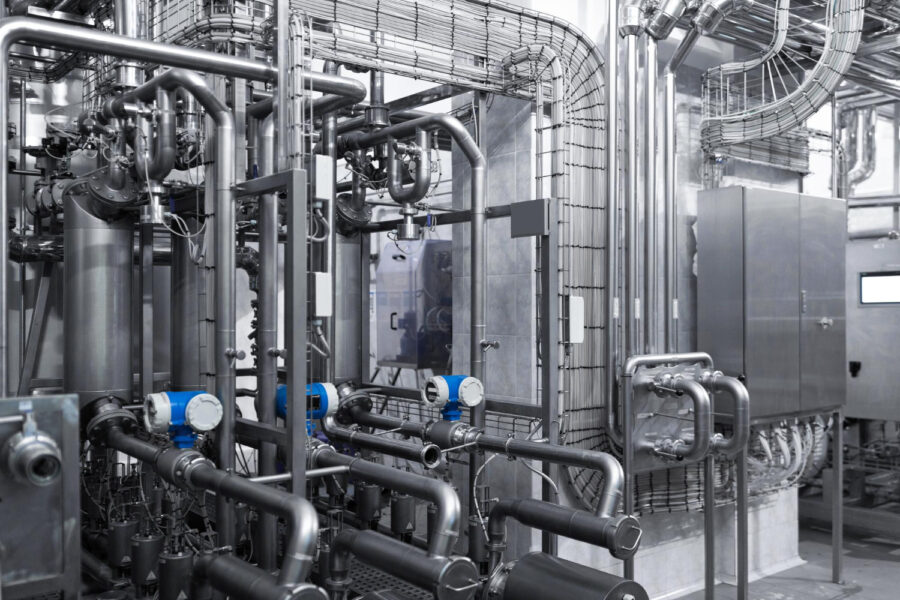The Role of Industrial Process Filters in Maintaining Quality Control

Creating a product that meets customer demands and maintains a company’s standards is challenging. Quality control is essential to a production facility, including training personnel, creating benchmarks, and testing products. Industrial process filters are an integral tool for maintaining quality controls. They remove impurities from foods and drinks, air, and sterilize equipment.
Sterilization
Industrial process filters Virginia are necessary for sterilizing various equipment and materials. Biological indicators (BI) verify that the sterilization process was effective by demonstrating the lethality of a specific population of non-pathogenic microorganisms (such as Geobacillus stearothermophilus). Mechanical monitoring consists of evaluating the actual readings on gauges within the sterilizer during a process. For confirmation of sterility, spore testing should be conducted every week. Conducting spore tests and maintaining accurate records ensures that the sterilization cycle parameters have been met and establishes accountability in practice. In addition, periodic assessments (revalidations, sterility dose audits) of the adequacy of the sterilization process must be conducted. The verification activities must be documented in the device master record.
Defoaming
Industrial manufacturers must capture common pollutants from their products to ensure quality and safety in manufacturing environments and maximize uptime. Industrial filtration captures these contaminants by filtering out air, liquids, and gases in various applications. Foaming is a common problem in many industries. It can cause multiple issues, including higher fluid temperatures, slower system response with erratic action, pump damage due to cavitation, and an inability to develop complete system pressure. Foaming can also be costly and disruptive to the production process.
Chemical additives called defoamers and antifoamers reduce or prevent foaming in industrial processes. These chemicals are emulsions that contain hydrophobic particles that lower or eliminate foam by inhibiting its formation and causing it to decay faster than average. These chemicals can be either organic or inorganic. Often, they are derived from natural plant sources such as soybeans, castor beans, and nut oils. They are also formulated with ingredients such as surfactants and fatty acids.
Filtration
Often, the fluids and gases used in manufacturing are filtered through filtration. In this process, a liquid or gaseous mixture is dispensed over a filter medium that allows the fluid to pass through while the solid particles remain on the surface. Filtration can be chemical, biological, or physical. The resulting clarified liquid or solid filter cake is the desired product. Filtration systems also help protect equipment by filtering out contaminant-laden dust or debris that could otherwise damage machinery and cause costly downtime. This helps keep lubricants, coolants, and chemicals clean and free of contaminants that can lead to abrasive wear or corrosive elements. In addition to meeting safety regulations and standards, industrial filters must also be the right size for the space they are installed in and able to handle the air pressure of the corresponding industrial system. This ensures optimal performance while preventing the risk of the filters becoming blocked or clogged.
Dust Removal
To keep production up and running without interruption, industrial facilities must ensure that dust is captured. This helps to reduce the risk of contamination, prevents downtime, and protects workers’ health. Air pollution in industrial facilities can cause various problems, including reduced productivity, expensive equipment maintenance, and employee safety. Industrial filters can help to mitigate this problem by reducing the amount of airborne particulate matter in production areas. Several types of industrial filters can be used to remove dust from process environments. These include EMI/RFI, electronic, fluid, hydraulic, and cyclone filters. Each type of filter is designed to reduce the level of contaminants in a particular process. For example, a cyclone separator is an excellent choice for removing dust from power plant applications and other industrial facilities. It removes dust at the source, doesn’t require ductwork, and can be portable. It is also a good choice for facilities with limited space and where access to the source is difficult.